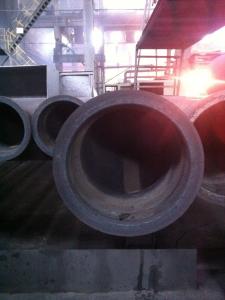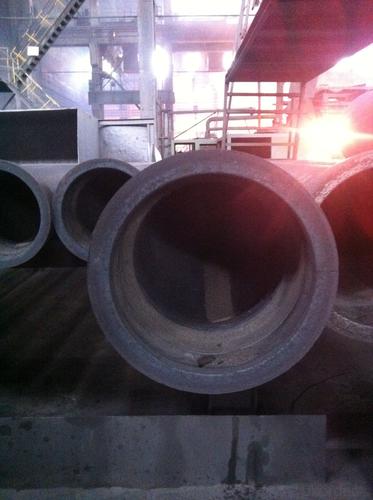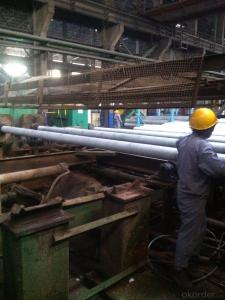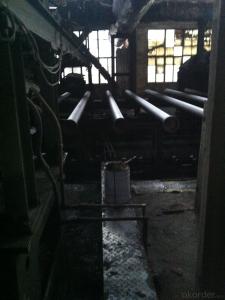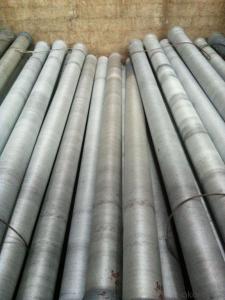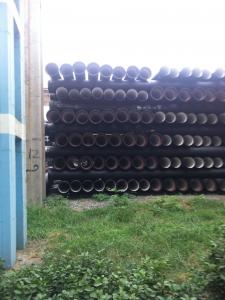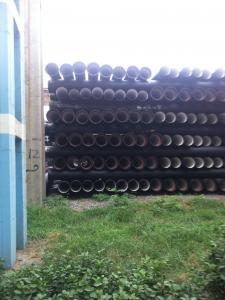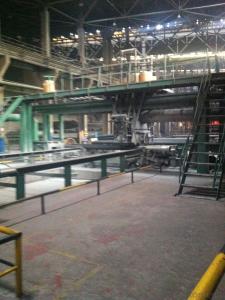DUCTILE IRON PIPES AND PIPE FITTINGS K9 CLASS DN900
- Loading Port:
- Tianjin
- Payment Terms:
- TT OR LC
- Min Order Qty:
- 22 pc
- Supply Capability:
- 3000 pc/month
OKorder Service Pledge
OKorder Financial Service
You Might Also Like
Material : Ductile Cast Iron
Size Range : DN 80mm to DN 2000mm
Unit Effective Length : 6m or 5.7m
Manufacture Standard: ISO 2531:1998/ EN 545:2006/EN 598:2007
Annual capacity : 200,000 tons
Coating Exterior: Zinc 130g/m2 according to ISO 8179-1 and bitumen coating 70 microns.
Cement Interior: Portland Cement/ High Alumina Cement/ Sulphate Resisting Cement Lining according to ISO 4179
Special requirements on external coating and internal lining can be applied
We also provide accessories such as SBR/EPDM rubber gaskets, lubricant paste, pipe caps, PE sleeves, etc.
Additional Parts:
Each pipe is strictly inspected according to related standard to ensure permanently high performance.
Easy Installation at site and service free for life
Long Service Lifespan
Quotation will arrive you within 24hours once we get your inquiry.
We guarantee offering you a competitive price.
A copy of original inspection reports of pipes will be offered after shipment.
Photos of loading process will be sent to the customer after shipment effect.
We will follow-up the delivery progress after shipment effect and update to the customer on weekly basis.
- Q: Are ductile iron pipes suitable for use in irrigation canals?
- Yes, ductile iron pipes are suitable for use in irrigation canals. Ductile iron pipes are known for their strength, durability, and resistance to corrosion, making them ideal for transporting water in irrigation systems. They can handle high-pressure flows and are capable of withstanding the challenging conditions of irrigation canals.
- Q: Can ductile iron pipe be repaired if it gets damaged?
- Yes, ductile iron pipe can be repaired if it gets damaged. Various repair methods such as welding, clamping, and epoxy lining can be used to fix cracks, leaks, or other types of damage in ductile iron pipes. However, the repair method depends on the nature and extent of the damage, and it is recommended to consult with experts or professionals for proper repair procedures.
- Q: Can ductile iron pipes be used in culvert or storm sewer applications?
- Yes, ductile iron pipes can definitely be used in culvert or storm sewer applications. Ductile iron pipes are known for their strength, durability, and flexibility, making them ideal for such applications. They have the ability to withstand heavy loads, resist corrosion, and handle high flow rates, making them a reliable choice for culverts and storm sewers. Ductile iron pipes also have a long service life and require minimal maintenance, further adding to their suitability for these applications. Additionally, ductile iron pipes can be easily installed and are available in various sizes and configurations to meet the specific requirements of culvert or storm sewer projects. Overall, ductile iron pipes are a proven and widely used option for culvert or storm sewer applications, providing efficient and long-lasting performance.
- Q: Can ductile iron pipes be used for bridge drainage systems?
- Yes, ductile iron pipes can be used for bridge drainage systems. Ductile iron is a strong and durable material that is commonly used in various applications, including water and sewage systems. It has excellent corrosion resistance and can withstand heavy loads and pressure, making it ideal for bridge drainage systems. Additionally, ductile iron pipes have a smooth inner surface that allows for efficient water flow, preventing clogs and blockages. Therefore, ductile iron pipes are a suitable choice for bridge drainage systems due to their strength, durability, and ability to handle the required water flow.
- Q: How are leaks repaired in ductile iron pipe?
- Leaks in ductile iron pipe are typically repaired by cleaning and preparing the area around the leak, applying a suitable sealant or epoxy, and then securely fastening a repair clamp over the affected area. This clamp provides a tight seal and prevents any further leakage.
- Q: What is the expected deflection of ductile iron pipes under load?
- The expected deflection of ductile iron pipes under load can vary depending on various factors such as the diameter, wall thickness, type of soil, and the magnitude and distribution of the load. However, generally speaking, ductile iron pipes are designed and manufactured to have minimal deflection under typical loads and are known for their high strength and stiffness.
- Q: Can the underground cast iron pipes be connected with clamps to form buttress?
- Best not to, because the use of clamp connection way to connect the poor integrity of the pipeline, the base treatment is not in place or uneven settlement, it is easy to produce deformation, resulting in pipe bending deformation, easily leaked from the junction.
- Q: There are several forms of flexible interfaces for Spigot Cast Iron Pipes
- China's production of "GB 13295-1991 centrifugal casting ductile iron pipe)," GB13294-1991 "provisions of nodular cast iron pipe annealing, centrifugal casting, water for ductile iron pipe pipe, pipe fittings, rubber technical performance, the interface type adopts slip type T shaped interface.
- Q: What is the difference between a cast iron pipe and a ductile iron pipe?
- Nodular cast iron has high strength and strong plasticity. The tensile strength of ductile iron is twice that of gray iron, and the yield strength even exceeds that of cast steel.
- Q: How are ductile iron pipes protected against erosion caused by high-velocity flow?
- Ductile iron pipes are protected against erosion caused by high-velocity flow through various methods and techniques. One common method is the application of protective coatings on the inner surface of the pipes. These coatings create a barrier between the flowing water and the pipe material, reducing the abrasive effects of the high-velocity flow. The coatings used may include epoxy, polyurethane, or cement-mortar lining, depending on the specific requirements of the application. Additionally, manufacturers often design the pipes with increased wall thickness in areas that are prone to erosion, such as bends or areas where the flow velocity is highest. This extra thickness provides additional strength and resistance against erosion. Another technique used to protect ductile iron pipes from erosion is the implementation of flow control devices, such as flow deflectors or velocity-reducing fittings. These devices help to redirect the flow and reduce its velocity, thereby minimizing the impact on the pipe walls. Regular maintenance and inspections are also crucial in preventing erosion. By monitoring the condition of the pipes and identifying any signs of erosion early on, appropriate measures can be taken to address the issue before it escalates. This may involve repairing or replacing damaged sections of the pipes, as well as implementing erosion control measures such as sediment filters or flow restrictors. Overall, a combination of protective coatings, design considerations, flow control devices, and proactive maintenance strategies are employed to ensure that ductile iron pipes are adequately protected against erosion caused by high-velocity flow.
Send your message to us
DUCTILE IRON PIPES AND PIPE FITTINGS K9 CLASS DN900
- Loading Port:
- Tianjin
- Payment Terms:
- TT OR LC
- Min Order Qty:
- 22 pc
- Supply Capability:
- 3000 pc/month
OKorder Service Pledge
OKorder Financial Service
Similar products
Hot products
Hot Searches
Related keywords
